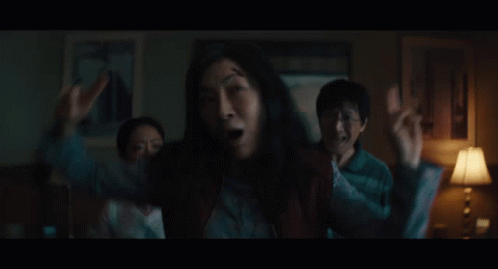Ponytail Press drops an excerpt from Ovid's Metamorphoses (translated by Anthony S. Kline) every Monday morning. We all chew on it throughout the week and then discuss it on the weekend under the post that drops the following Saturday. Sound fun?
This week, the last of us decode a message from the gods, and in turn, we spring from our mother’s bones. What does it all mean? Let’s dig around to find out.
Cracking Themis’ Code
Metamorphoses is a poem. I don’t say this to be condescending. I say it to remind myself. Because if I turned to a higher power and the message sounded like Themis’, I think I’d be pissed. Why so veiled and indirect? Couldn’t she just spell it out?
‘Leave the temple and with veiled heads and loosened clothes throw behind you the bones of your great mother!’
But Metamorphoses is a poem, so our job is to look passed the literal and see what we can find below the surface. And as if to help, Ovid forces his two human characters to do exactly that.
At first, they too are confused. Pyrrha even refuses to follow the oracular order. But after a moment, her husband suggests that there might be more to the goddess’ command than first meets the eye. They’re meant to break the message’s code, not take it at face value. Mother = Earth; bones = stones.
From the outside looking in, this deosn’t clear much up. They’re supposed to loosen their clothes and throw rocks behind them? Why? Isn’t there an easier way to repopulate the world?
There’s an answer to that question—the question of why—and the metaphors will lead to the answer. Ovid didn’t get his reputation by choosing his words at random. So let’s look at each of them closely to see what kinds of things are living under those stones.
Your Great Mother
Looking at the quote from Themis, I think it’s best that we start at the end and work backwards. That’s how Deucalion does it, so I’m guessing Ovid would prefer we did it that way, too.
It doesn’t take a genius to understand why cultures all over the world—from Europe to North American and Southeast Asia—have described the planet as “Mother Earth” or “Mother Nature” or some other maternal name for most of human history. Our world feeds us, takes care of us, and asks for nothing in return. We come from it, and we rely on it constantly.
Describing the Earth as a mother hasn’t gone anywhere. It still comes up regularly, though often with a more scolding tone than how Ovid uses it here. To make our points about the damage we’ve done to the environment, we describe Mother Nature as angry and out for revenge. Personally, I don’t have an opinion on whether or not this modern use of the metaphor is helpful. I’d say that’s up to the individual.
The Bones
I can’t help but also consider the cyclical nature of Themis’ metaphor when she refers to stones as “the bones of [their] great mother.” The universal symbol of death being used to create new life—it’s a nugget ripe with the kind of meaning best left unsaid. It actually reminds me of a poem I wrote once. I’ll share it here, because why the hell not?
Mother
I hide in the darkest corner of your cupboard, praying not to be an ingredient in your rye, alive and ready to die and rise a mother’s loaf made for her hungry baby’s gaping tomb. Oh, alright – use me for your dark dough. Feed your young with what life you find in me. Throw me in the oven of your dirty womb.
Investigate the Weird
This poem of Ovid’s gets strange. I’m beginning to think we haven’t seen the half of it. But looking closer at this section reminds me that the strange parts are where the magic happens. Like George Saunders says, “Freakification… leads me to try to be more truthful, which is the same as trying to be more original.” If you want to know what the text means, look at the odd parts, the weird moments and words that stick out to you.
What do you think?
I’m dying to know. We didn’t even get into the loosened clothes and veiled heads, not to mention the other regenerated species.
Find anything else under those rocks? Any other messages in this story you think I missed?
Know of any other stories you can think of where the best parts are the weird parts?
Yes, I want to know what you think about the loosened clothes and veiled heads, but also, why did they have to throw those stones backward?
We left on a bit of a cliffhanger, with mention of “new monsters.” What lies in waiting on Monday, you think?




